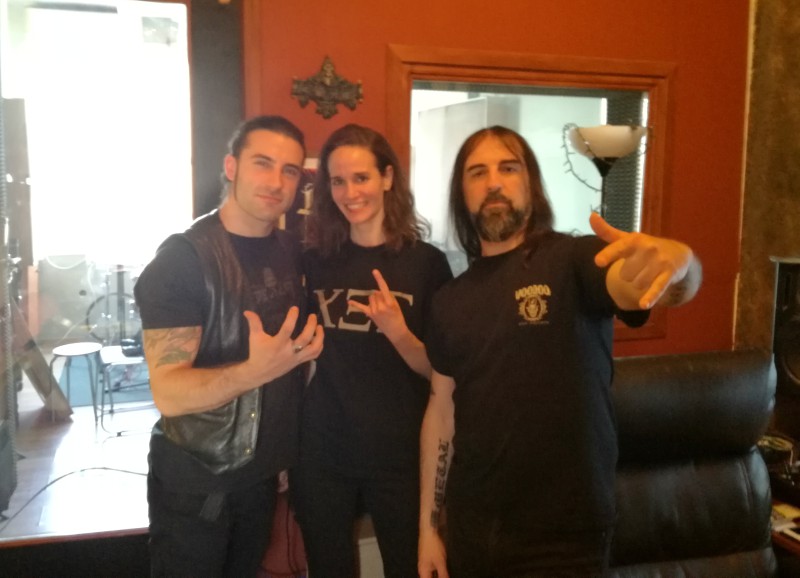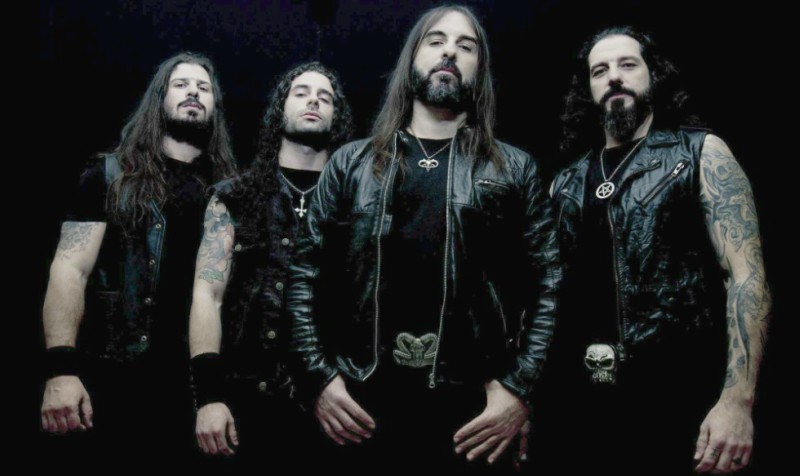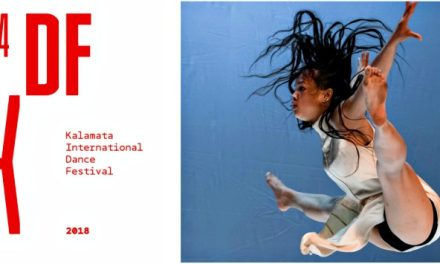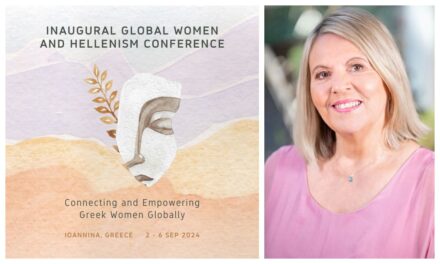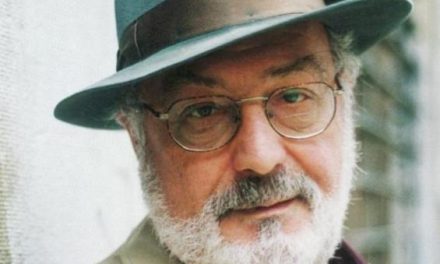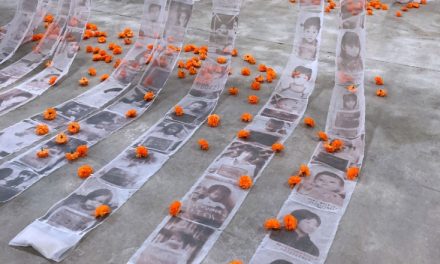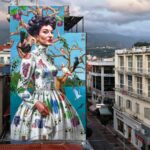For Greek “metalheads”, Rotting Christ needs no introduction; the same goes for many more music fans worldwide. The band’s core, brothers Sakis (vocals/guitars) and Themis Tolis (drums), founded the group in their teens and are still in full creative bloom, 30 years later. Their original official releases featured a more classic black metal sound, although already displaying their own unique, refreshingly melodic approach. From one album to the next, they haven’t stopped evolving; gothic experimentation gave way to a multitude of influences, from a lyrical, musical and aesthetic perspective, never betraying the essence of extreme metal. Greek antiquity, Mesopotamia, pre-Columbian cultures, the vibrant folklore tradition of Greece and the Balkans are only a few of the elements that have forged their diverse, distinctive style.
The band’s discography includes 12 full-length albums (preceded by several demo releases and their legendary first EP Passage to Arcturo [1991]) along with some live albums and compilations. Having spent the better part of the past two years on tour -promoting their latest studio album, critically acclaimed Rituals, (2016) in Europe, North and South America- the band is back on the road for the promotion of the compilation Their Greatest Spells (2018): a 33-track, two-disc collection of some of their most representative songs, on the occasion of their 30th anniversary. Sakis Tolis is the heart of Rotting Christ: he is not just the singer/frontman of the group but, most importantly, the sole composer and lyricist for the greatest part of their career, also having produced and mixed the majority of their releases and performed most of the instruments for the recording of their latest albums. We met with him* and he answered all our questions about the long way they have come and the road ahead.
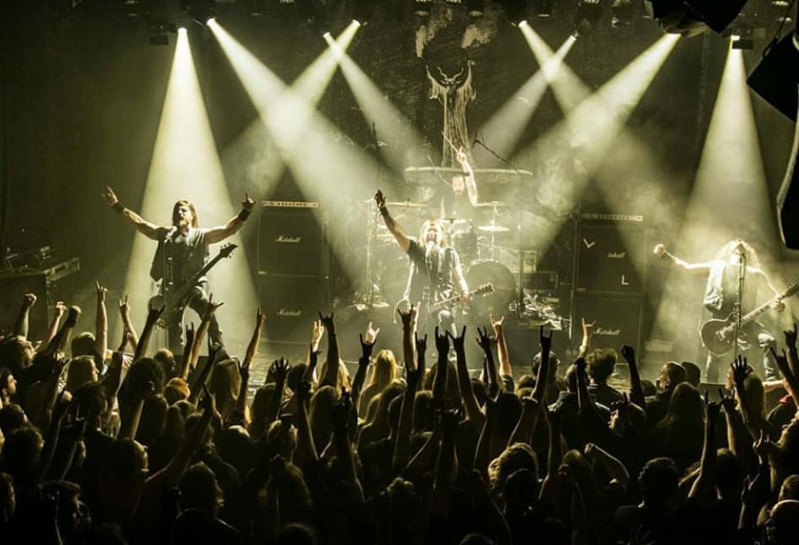 Live in Berlin (Photo: Ymkje Veenstra)
Live in Berlin (Photo: Ymkje Veenstra)
So, you have a 30 year history behind you – it’s hard to imagine, for someone as young as you.
Well, it’s my passion; I’ve been on stage non-stop since I was 15-16, always working in music, ever defiant. I have created a world of my own, along with the rest of the guys, I don’t know if that’s crazy or whatever; we haven’t really studied music, our education comes from the road, from everyday life, and this has helped us to stay on our path.
Can you point to a particular date as the band’s “birthday”?
No, it’s just that in 1988 we made our first demo tape.
You have repeatedly stated that when you started the band, you didn’t have success in mind, didn’t expect it and that, in fact, it’s wrong to start in music with that attitude.
Sure, that wasn’t our attitude, “we’ll be bigger than the rest” – I don’t believe in that way of thinking at all.
But did you at least hope to do this for a long time?
No, not really… You know, I thought we’d have some good times and then I would probably “straighten up”, do what most people do – but in the end I never did straighten up, I stayed on my path.
Now at least you’re among the very few in this field in Greece who can make a living out of your art.
Well, after 20-25 years on the scene we managed to make a living out of it – well kind of, you know; some of the guys have to take up some other jobs too. Me, I write the songs, arrange all the live shows, do the management, so I have come to a point where this takes up all my time and therefore I can earn enough to get by, like most people.
In any case, you are arguably the artists with the greatest international success, currently, coming from Greece.
At this time, we probably are. And it’s important for me that we are really a Greek band, we grew up here and stayed; in spite of all the difficulties we faced all these years, we never thought of packing up and going to a different country, even if that would make things easier for us, especially from a financial point of view. You see, living in Greece means we have to travel by air for each concert we give, and that’s barely viable. But we choose to stay in Greece because we just love it here, we love our country – in a totally non-jingoistic sense, of course.
In an interview about a year back you had said you had given about 1400 concerts. What’s the tally now, you still keep score?
Yeah, I write it down on my computer! I can’t really remember right now, but it’s well over 1400 by this time, of course, in every corner of the world, either as headliners, in joint tours, in festivals, everything.
You, personally, have also been recently included in a list of the “30 Most Underrated Hard Rock and Metal Guitarists” by the famous online magazine Loudwire, how was that for you?
I was very pleased, obviously! It’s what we work for, you know, this feeling of accomplishment, of fulfillment. Sometimes they ask why I do things, like go and give a concert in a far-away place, where the earnings don’t really cover the expenses. “Is it worth it?” they ask. Well I do it for this feeling of fulfillment, that is very important to me and it’s not something you can put a price on. Same goes for this kind of recognition; earning the respect of certain people in the business, it’s a big deal.
Compared to new bands today, having access to all these platforms, like YouTube, do you feel that when you started out, back in the day, you had it worse, or maybe better?
As far as promotion is concerned, definitely worse; our only means of contacting anyone was through hand-written letters and cassette tapes we sent out. But we did have something that’s harder to find nowadays: authenticity. We had little access to information, keeping up with the scene was really hard in late ‘80s – early ‘90s Greece. But we had formed a community, small in numbers but resilient, and we all loved what we were doing, it was a way of life. It’s still the same, but we tend to shy away from the media now. You release a song and the comments can be scary. Once these comments were private, now they’re public, and this feeling of a global village you get now has really changed the essence of music making, it has changed the scene; I don’t know if we can talk about an “underground scene” anymore.
I recently interviewed the progressive metal band Poem, and they referenced you as one of the two bands that made a name for Greek metal abroad, and opened doors for the rest.
Yes, I’ve been told that, that some see us as examples. I have no studies in music, but what I did do was get out on the road, travel, try to find out about the world outside when playing my music. It’s my passion and I think many share this passion now in Greece and it does get them somewhere.
But for you there was no foundation to build on, here in Greece.
No, not at all. I like to be a trailblazer in life. It’s hard, it takes time, but it’s fulfilling. Not just on the Greek scene; I like to go where others don’t. Or when we set out on a European tour in the early ‘90s, at a time when no bands did this in Greece. I like to take the risks – you only live once.
What’s your view on contemporary Greek metal production?
I think it’s quite strong now. Greek metal has made its own mark. I see a lot of bands that really work hard and are in fact very creative. Greek metal bands are probably our biggest music export, as much as that may surprise some. There was a time when other composers from Greece had an audience abroad, but this is no longer the case, unfortunately. But what we do have now is our metal scene, gaining ground little by little. Metal and indie bands, making their way on their own, without media attention, without making a big fuss, based on their passion. Hard work gets you there in the end.
Are you ever concerned about black metal purists calling you out on not being as “true” anymore, on having changed, etc.?
Well, maybe we’re not as “true”, but we’re even crazier than before! (laughs)
So these comments don’t really concern you…
No, they do, you see we do consider ourselves as part of the black metal scene – but I can’t be the same as 30 years ago. And I have to be honest: I see musicians my age playing the exact same stuff as 25 years ago, and I think they feign it, to some extent. I don’t believe someone can remain the same person they were at 16-20 years of age. Different ages have a different kind of “crazy”. My kind of crazy now stems from a mature version of myself, and I think that makes it genuine. I wouldn’t want to create something that doesn’t reflect my true self. People will go and say stuff anyway, you can’t keep everyone happy.
So you’d say that the changes in your sound don’t simply come from a quest for innovation, but they in fact reflect your evolution to reach a creative maturity?
Yes, I think they do. And that is also obvious in our concerts, then and now. I think we are better musicians now, we put on a better show, we have a plan.
When you issued your concept album AEALO (2010), a work heavily inspired by Ancient Greek themes -as has been the case with other songs as well- were you concerned about some people assuming your endorse nationalistic or far-right ideas?
There’s always this danger but, as I said before, we like to be trailblazers and push some limits. If you don’t defy some beliefs, nothing’s ever going to change. It’s wrong to think that being inspired by your country’s history or legacy makes you a chauvinist or a supporter of the far-right. We are against those beliefs. It’s just our cultural influences; we never claimed to form part of a superior race, better than the rest. Far from it, we grew up with anarchist ideals, which still inspire us. But it’s high time we break some taboos, and someone has to make a start, and I like to be that someone.
Anyone who got the wrong idea about you, probably got their answer through your following album releases, each of them being an amalgam of a multitude of influences from various ethnicities from around the world.
Sure. You know, I always try to be myself, each time I compose and write. In these particular times, these were my inspirations, and they shaped my music.
And is this diversity owed to your extensive travels as part of your music tours?
Yes, I think it is. That’s what I do, whenever I am traveling, I become one with the people there, I like that; I think each people has a lot to offer, each culture has positive aspects, something that can affect you.
Travelling opens up your mind, right?
Definitely! After having travelled, I am no longer daunted by taboos. As I said, my knowledge comes from day-to-day life, and what I learned by travelling is that people face the same troubles. When we talk about the middle class, which I belong to, everyday people, we have the same problems regardless of the country, and what we need is solidarity with each other and a mature way of thinking, and to not try to prove that we’re better than the rest, superior in some way. If we could all think like that, there wouldn’t be as many problems. You have to learn how to give; you don’t value that much when you’re young but with age you learn that the more you give to others, the stronger you become.
From a practical point of view, how did you manage to write – and pronounce – many lyrics in foreign languages you don’t speak (French, Hindi, Hebrew etc)?
I always seek help from friends, acquaintances – with French I had help from a friend from Samael, for example.
A dominant theme in many of your lyrics is death, loss, the evanescence of existence. Does this come from personal experience or rather from, let’s say, an ontological point of view?
It’s basically the latter – “only death is real”, as we used to say. This theme is present in our songs – it’s not the only issue that concerns us of course. It’s something that scares people and it scares me too. But I want to look my fears in the eyes, that’s the only way to try and conquer them. Travelling helped with that too: people would say “don’t go to this or that place, it’s dangerous” and it did frighten me but I did it anyway, and the reality I found there had nothing to do with how others had portrayed it. Defying my phobias makes me a stronger person.
What are some other things you like to listen to apart from metal, and do they inspire you in your work?
Well, first of all I try to keep up with the latest releases in metal, to know what’s going on, but I like other things like soundtracks, world music, music that can be strange, soulful; I have many different influences and that is sometimes evident in my music.
You are currently in the process of putting together your next album.
Yes, I’m on a “creative trip”. It’s a difficult process, because we live in dull times, that make us dull as well, and I try to escape and find myself. I hope I have a good “journey” going down this road. Growing up, it’s harder and harder to escape, responsibilities and bureaucracy in your everyday life get you down, so I hope I can overcome all this and create something good.
I guess it’s still early to ask for any comment on how the album is going to be.
Yes, it’s too early – it won’t come out before 2019.
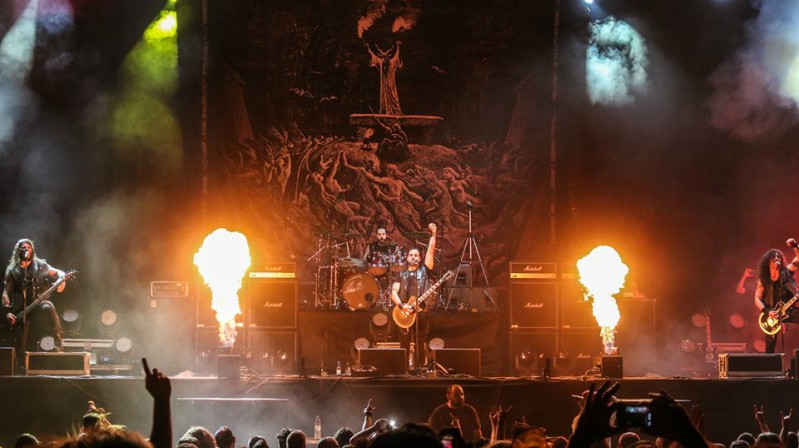 Live at Rockwave (Photo: John Metalman)
Live at Rockwave (Photo: John Metalman)
How do you define yourselves as a band, in terms of genre?
I would call us metal, dark metal – you can call us anything as long as it’s within the metal spectrum.
Even when you where a purely black metal outfit in your early days, you never appeared in corpse paint.
No, we wanted to be ourselves, as I said. I want the audience to see me for what I am. I of course have nothing against this different approach. It’s just not who we are, theatrics are not part of our mentality.
I guess you’re weary of talks about the band’s name, but I have to ask; I know it has caused you troubles time and again, culminating in your recent ordeal in Georgia. I’m going to ask about something different: I’ve encountered fans who didn’t bother to find out more about you because of your name; and not because their religious beliefs were offended, but instead because they thought you would be one of those rather uninspired, juvenile bands, just screaming curses at God
That we’d be shallow, I see.
Yes, and not having a lot to offer, creatively or intellectually. When they did discover your work they realised they couldn’t have been more wrong, of course! So does this concern you, this risk of misrepresentation? Because you‘re the exact opposite of that.
Yes, that’s not us, we don’t resort to cheap tricks. But keep in mind we came up with the name in ’88, when we were just kids and wanted to raise some hell, smash things up. We still want to change things, but we choose a different way now, a more constructive one. But this is our name, it’s our history, we can’t just change it. Plus we still believe all religions are rotten. Even if that’s not our main concern – we don’t believe that religion causes the most troubles in the world right now. But it’s a synonym of conservatism, for sure, and we’re against conservatism.
After all, if you did change your name -a choice you had considered at some point- it would seem like you caved in, like they won…
…the conservatives, yes. It would actually be like our “other” selves won. There’s this perpetual struggle between our inner demons; sometimes you wake up in the morning and think to yourself “Am I doing the right thing? Is it worth all the trouble?” But I realise that doing what I do keeps me young, uncompromising. That’s what helps me endure this struggle within.
How did you choose the tracks for the Their Greatest Spells compilation?
Oh that was a real headache! The best I could do was put in one or two songs from each album.
Did you choose some of your favorites? Or the fans’ favorites?
A mix of both.
How come you haven’t made more music videos? I’m asking because I think those few you have made, especially the most recent ones, really stand out aesthetically, it’s not something one comes across very often in this genre.
Well, you see, YouTube and other online platforms are only part of our lives for the latest decade or so. Before that, there was no point in shooting a video that only one channel would air maybe once. Now it’s worthwhile, so we try to enhance our visual presence online.
Do you have a word of advice for young musicians starting out now?
Advice is not my strong point; if I had to tell them something, I’d urge them to be themselves, and never conform to the norms set by others – I’m talking about people in my field, of course; my advice wouldn’t be of much help to aspiring pop stars, I guess. If you stay true to yourself and keep your faith, this will pay offeventually. But it takes patience, something missing from many young people today. We live in fast times, and they expect it all to work out fast, they dream of instant success. You can’t think like that; we’ve been in this line of work for thirty years and are just now beginning to make a living out of it. We don’t do what we do to “be big”, to prove we’re somebodies; we do it because we love it, because we’re mad about it.
*Interview by Nefeli Mosaidi
Read also via Greek News Agenda: Progressive metal band POEM in an exclusive interview just before their first European headliner tour; Conductor Markellos Chryssicos on Baroque music and its dialogue with the Greek tradition
